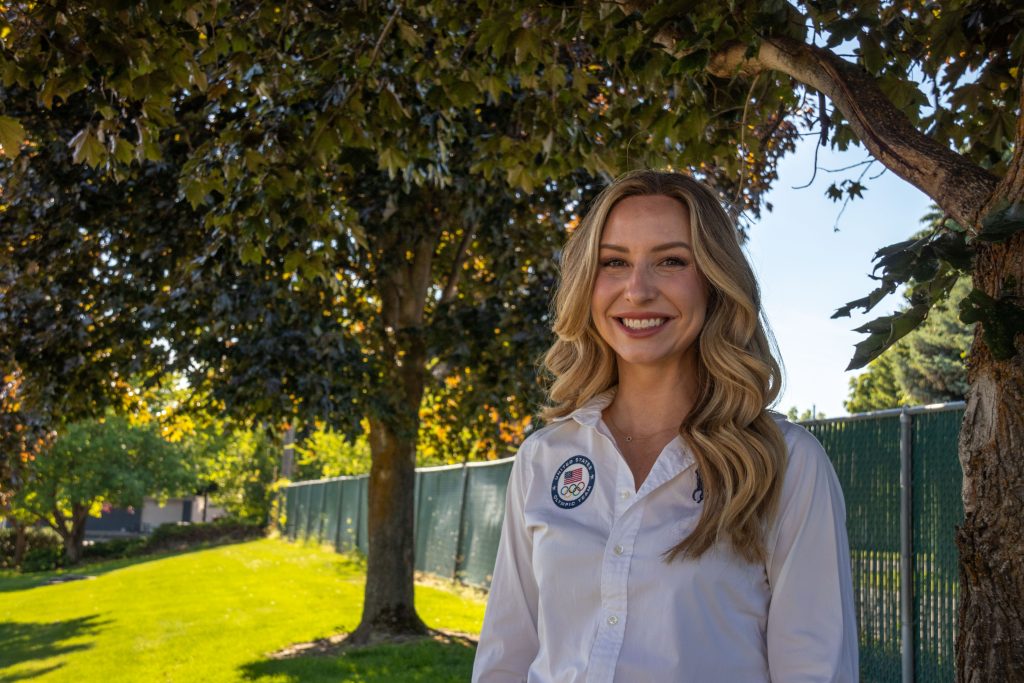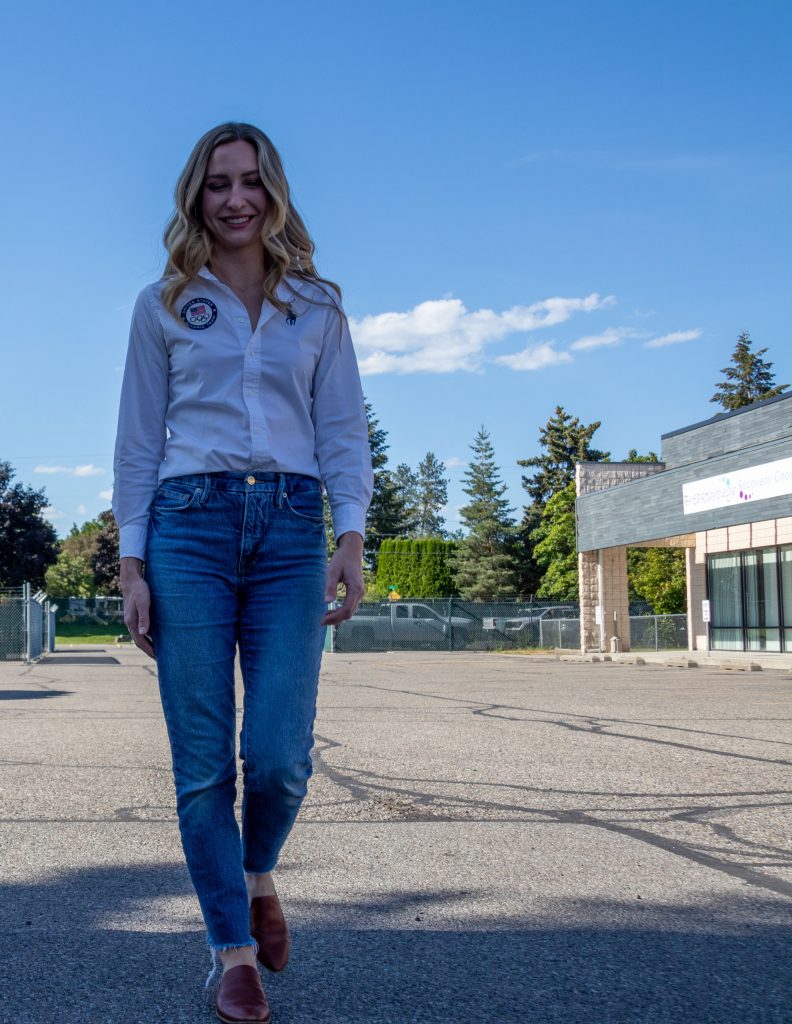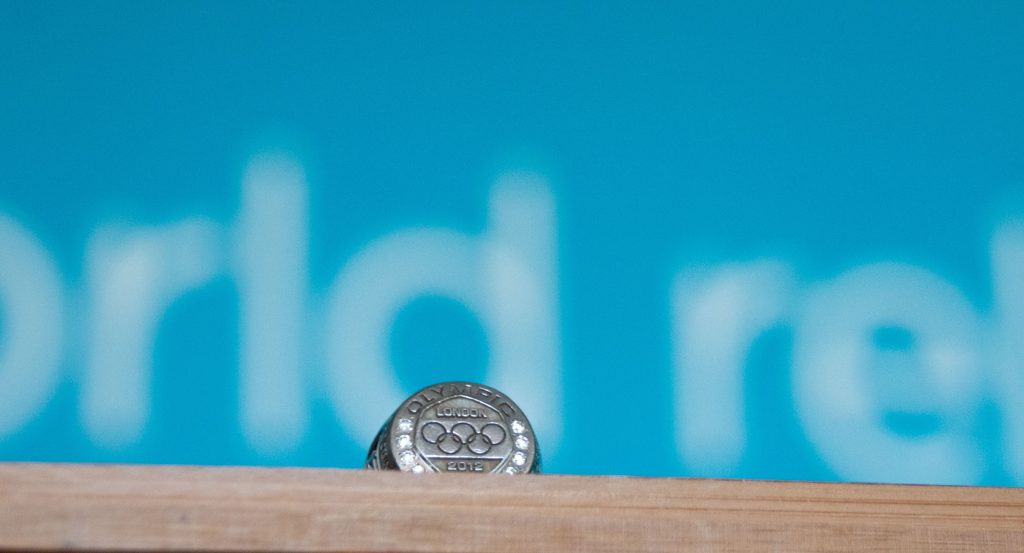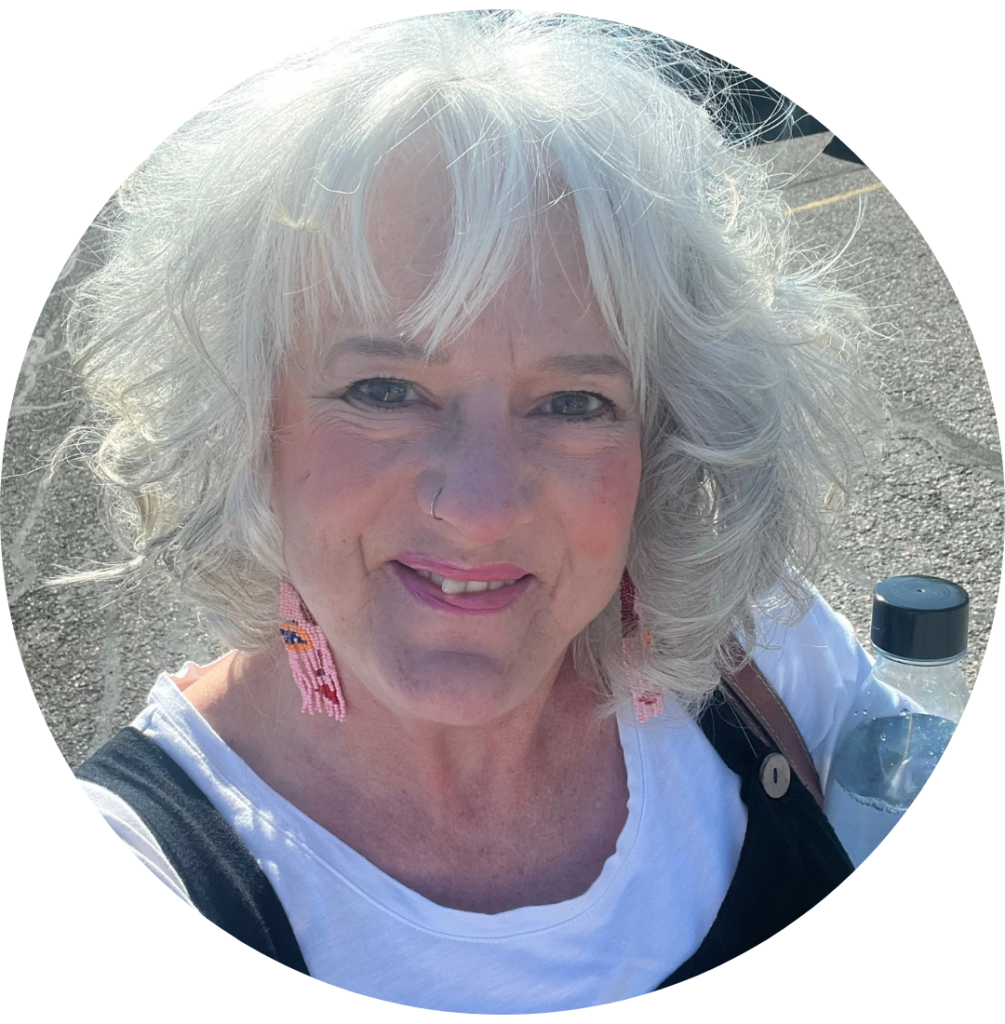Part 1
By Barbara Comito, Development Director
Imagine our surprise when we discovered that we have not one – but two – former Olympians serving as volunteers for World Relief Spokane.
Susie Luby won a bronze medal in downhill skiing at the 1972 Winter Olympics in Sapporo, Japan. Amanda Banta finished 15th in rifle shooting at the 2012 Olympics in London.
What does being a world-class athlete have to do with volunteering at World Relief? As it turns out, way more than we expected.
The Olympic motto in Latin “Citius, Altius, Fortius – Communiter” means “Faster, Higher, Stronger – Together” in English.

Amanda Banta
At their core, Amanda explained, the Olympics are all about unity.
“The Olympics are about uniting people from all over the world to take part in these sporting events; so it’s bringing people together from every region of the world, from almost all the countries. Everybody’s kind. Everybody hopefully performs fairly, and I know they make attempts at a global ceasefire during the games… So, I absolutely think there’s a connection between the Olympics and what we’re doing here.”
Amanda remembers seeing an Instagram ad for World Relief shortly after the Russian invasion of Ukraine. “I always think about the kids. What about the kids who are suffering in those situations? So, my first thought was, what can I do to help the kids who are over there? You know, I can donate, which I did and I do, for all kinds of situations, not just this one, but I wanted to figure out a way to be more actively involved.

“It took me a while to dive in and reach out and go through the training, but my thought was how can I be involved with the children who are coming here to give them their best first steps in the country? Show them what life can be like or at least be part of that process of them coming here and getting the chance to have a new life.
“I love being able to be that person for the kids and knowing that I’m helping to create that safe, happy, healthy environment for them. That’s a big driver for me.”
Amanda watches children while their parents participate in classes at World Relief. She frequently brings her own children, two and five, along with her.
Setting an Example
“I’m very thankful that I’m able to bring my children with me when I do childcare. For my own sake, that’s wonderful, but also, knowing that my kids are seeing 1) that it’s important to serve your community; it’s important to volunteer; it’s important to give back; and 2) there are people who live in all kinds of different circumstances, and we treat everybody with empathy and kindness and compassion and help everybody to feel safe.
Play is a universal language. I just try to teach them that they can make a difference in their own way, no matter how old they are.
Amanda Banta
“We can be friends with all different kinds of people who come from all different kinds of backgrounds and maybe we don’t speak the same language, but there’s different ways we can communicate. Play is a universal language. I just try to teach them that they can make a difference in their own way, no matter how old they are. They’re two and five, but I still see them go in and play with these other kids, and you can see that sometimes there’s a lack of communication and understanding, but they’re learning to work through that, and I think that will transfer into their own lives as adults, as well because they’re learning at such a young age that you can finds ways to communicate and relate to people who aren’t like you.”
Amanda, who works in wealth management with her dad and sister, said her grandmother’s story had a lot to do with her desire to volunteer.
Thinking about her Grandmother
“My grandma was an immigrant. She’s no longer living, but she grew up during World War II in East Germany. She was a child, an orphan, when WWII was happening. When she was 21, she escaped from East Germany and took a boat to Ellis Island and immigrated to the U.S. She worked at the Bulova Watch factory. That was her first job here. She served a Jewish family in New York City and, eventually, somehow ended up over in Vancouver, Washington. She had ten kids. Her husband had served in World War II.
“From my perspective, I think about what she grew up experiencing as a child, suffering through World War II in an area of Germany that was not a friendly area of Germany. And all that she must have seen and experienced. It’s a really difficult story. To know that she went through that, and she made it over here despite the situation she was in and grew a family and had many children who were very successful and to know that I am part of that lineage, it’s inspiring for me to think about.

“Because of the sacrifices that she made and everything that she suffered, now I get to experience things like being on the U.S. Olympic Team. And just how fortunate I am to have my family here in the U.S. and to raise my kids in an environment where they are safe and they’re healthy and happy.
“I know for the majority of people who come here, they don’t know anybody. So I think about what if that was my grandma coming over? How would I hope that she was treated? What are the resources I hope she would receive? I hope that people would be friendly and helpful, and that inspired me to figure out how I could help give back to people – specifically, refugees – who are coming from difficult situations in their homeland.”
Come back Monday for part 2 in our Olympic Volunteers series to read about bronze medalist, Susie Luby.

About the Author
Barbara Comito is the Development Director at World Relief Spokane. In addition to leading a team of creative professionals, she is married to a chef, has four children and three grandchildren, loves to garden, write and read/watch British mysteries.

